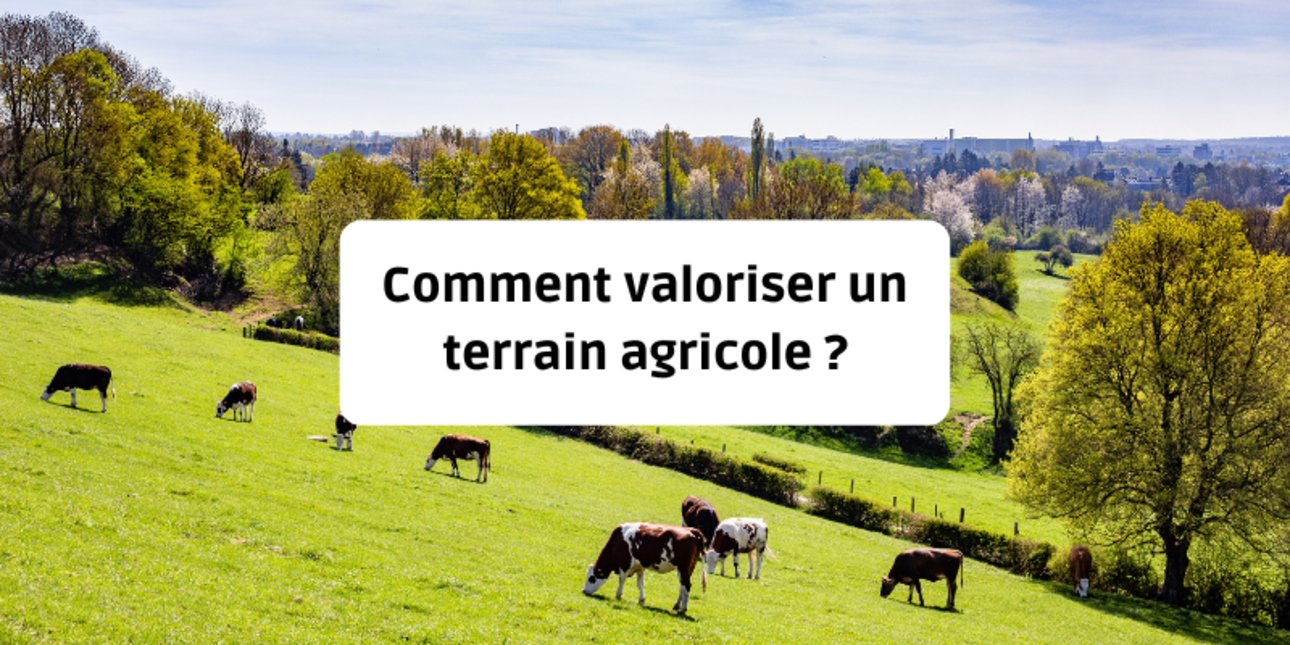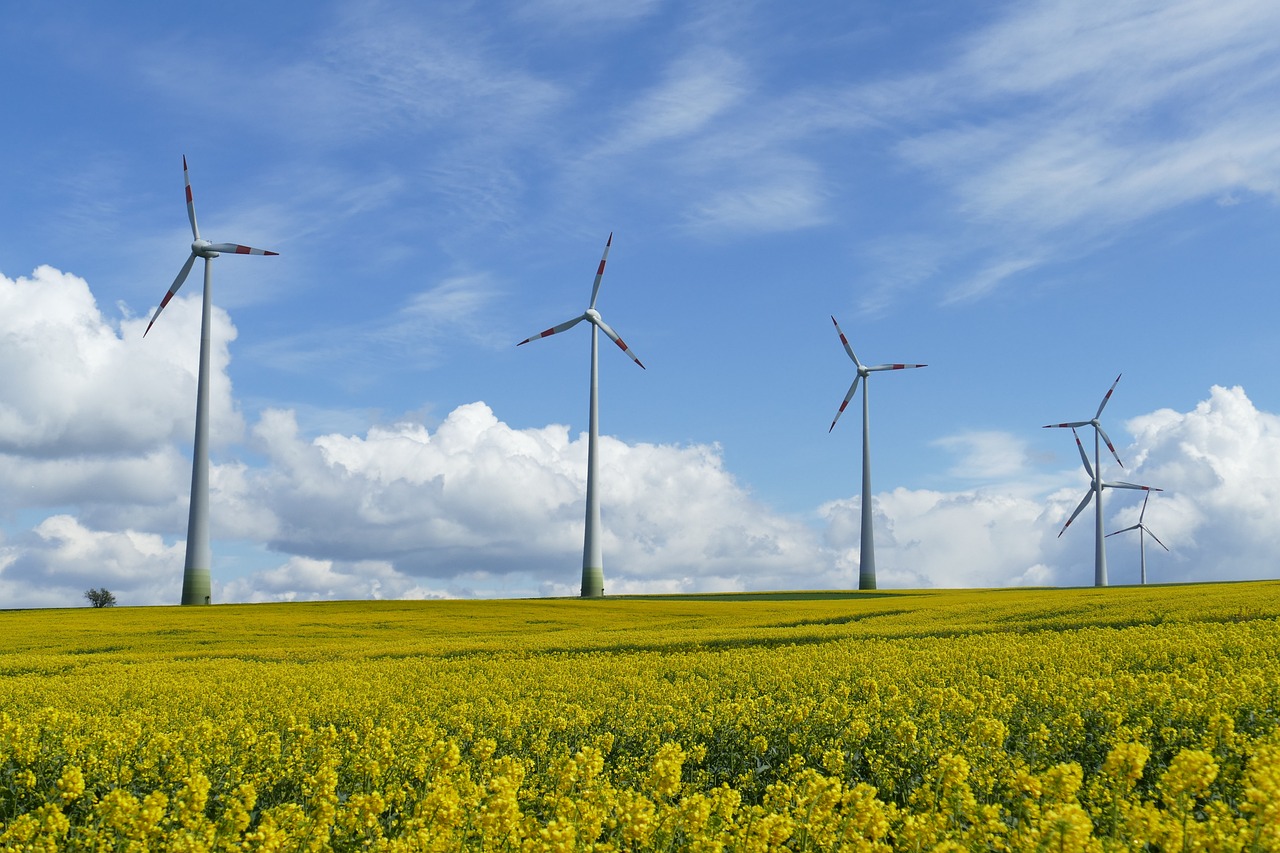
You have unoccupied agricultural land. You have no income from it, and you have to pay ever-increasing property taxes every year. From renting to reselling to energy production, we present you with different solutions to make your agricultural land profitable.
Renting agricultural land to a farmer
The basic status: the rural lease
Exceptions to the status of rural leases
Become a farmer to farm your land
Turn your farmland into a recreational area or garden
Renting a building on your farmland
Setting up an electricity generation facility on your land
Transforming your agricultural land into building land
You can rent your land to a farmer. Note that, except for leases of small plots, if you wish to receive an income from the land, you will be subject to the status of a rural lease (also known as a farm lease), a rental contract that is highly regulated by law.
In our blog you will find a series of articles on rural leases. Here are some important principles to remember:
It is therefore a very protective contract for the farmer and leaves little freedom to the lessor. Note that clauses in the lease that are contrary to these points are considered null and void even if they reflect the will of both parties.
It should also be noted that the annual rental amount varies both according to the quality of the land and the type of activity carried out on the plots. The plots are classified according to their quality between grassland, ploughing and scoring criteria. The rent will be different depending on whether the plots are used for mixed farming, market gardening, fruit growing, vineyards, etc.
You can also sign leases for a longer period of time that offer tax advantages. If you rent your land through a long-term lease (more than 18 years), the value of your farmland benefits from a 75% allowance up to €300,000 and 50% above for the calculation of inheritance, gift and IFI taxes.
These leases also generally allow you to increase the amount of rent (the increase varies according to each prefectural decree).
There are several types of leases:
Small plot leases
Below a certain surface area (determined by each prefectural decree) a lease on an agricultural property may escape the status of rural leases.
The surface area threshold is, for example
In this case, there is complete freedom between the farmer and his lessor to determine the amount of the lease, the duration, the conditions for renewal or termination, etc.
The precarious occupation agreement
There are 3 other special situations that allow you to rent a piece of land without falling under the status of a farm:
The SAFER provision agreement
Finally, the SAFER can conclude agreements between a landowner and a tenant under conditions different from a rural lease (duration of 1 to 6 years, renewable once) pending a subsequent sale or rural lease.
The commodat lease (or loan for use)
The commodat lease is a free lease, generally of short duration, concluded between a landowner and a tenant.
If you do not want to be covered by the statute of farming and cannot benefit from the exceptions, you can grant a free lease to your farmer, which allows you to have your land maintained without the disadvantages of a rural lease. You can, for example, grant this contract for a period of 1 year.

You can farm the land yourself and become a farmer. It is not necessary to have an agricultural diploma to be a farmer and it is perfectly possible to be a pluriactive farmer, i.e. in addition to another activity.
You will have to register with the Centre des Formalité des Entreprises (CFE) of the Chamber of Agriculture in your department. You may have to pay social security contributions to the MSA, depending on your activity, and you may have to obtain prior authorisation to operate under the Control of Structures.
You can call on agricultural work companies or CUMAs (cooperatives for the use of agricultural equipment) to carry out the work on the crops and call on service providers for the administrative formalities (income declaration, CAP declaration, etc.).
Unlike renting, the income from the use of your land will not be guaranteed because it will depend on production conditions, prices and the expenses you incur.
You can use your agricultural land for your own personal use by using it as a recreational area.
A recreational land does not correspond to any legal definition under town planning and it is the use you make of it that gives it the qualification of recreational land.
You can create your vegetable garden or pleasure garden, or install a "light leisure dwelling" for a few weeks or months. The creation of a water feature is also possible but requires authorisations that can be difficult to obtain.
If you have a building on your land for agricultural use, you may consider renting it:
It is indeed possible to rent a farm building for a commercial activity or for private individuals.
Companies such as Mon Hangar make it possible to rent out old farm buildings or storage areas to private individuals for the storage of caravans, motor homes, boats, etc. or to transport companies, construction companies, etc. This is a very interesting way of supplementing income.
It should be noted that agricultural buildings are exempt from property tax. Changing the use of these buildings means that they lose the benefit of this exemption, which can represent a significant annual cost.

In the agricultural zone, installations and constructions of collective interest, necessary for public service, can be authorised. This is particularly the case for the installation of wind turbines and solar power plants, as the production of non-polluting energy is a matter of public interest.
However, you will need to check the local PLU rules and put together a feasible project. The construction of wind turbines is nowadays highly regulated and ground-based photovoltaic installations are not always accepted by the neighbourhood, especially if they are built on agricultural land.
You should therefore contact professionals and present your project to the town planning department of your municipality.
Even if the number of farmers is decreasing, the demand for land is globally strong in France, which has notably allowed the value of land to double over the last 30 years.
Despite this increase, the value of agricultural land is far from that of land suitable for building. Prices vary greatly from one region to another and depend on local pressure, the quality of the land, its destination and the planting it can support.
You will find a presentation in our blog:
Please note: If your land is rented under a rural lease, your property will most likely be discounted as opposed to a freehold property.
The construction of a dwelling house on agricultural land is reserved, under certain conditions only, for farmers.
You must therefore either become a farmer and meet the necessary conditions, or change the use of your land.
Changing the use of agricultural land into building land is generally synonymous with a jackpot: the value of the property is multiplied by 10 or 20 or even much more. But it is not an easy process and above all it does not depend on you.
It is in fact the Local Urban Plan (PLU) or another urban planning document that determines whether a plot of land can be built on by classifying it as a U (Urban) or AU (Urbanised) zone. The classifications are regularly reviewed, but there is a strong trend towards the sanctuarisation of agricultural land. Between 2010 and 2020, 55,000 hectares of agricultural land were urbanised each year.
It is therefore worthwhile to contact the town planning department of your municipality to find out where the current building zones are and whether your land could benefit from a future change of use.
If your land becomes buildable, you can either build it yourself or sell it. Building will require servicing work to connect the property to the distribution networks (water, gas, electricity, etc.) and sanitation, which are very costly.
Good to know: If your agricultural land was leased to a farmer, the change of use of your plot of land allows you to end the rural lease. However, you will be liable to pay compensation to your farmer for the loss of gross margin.